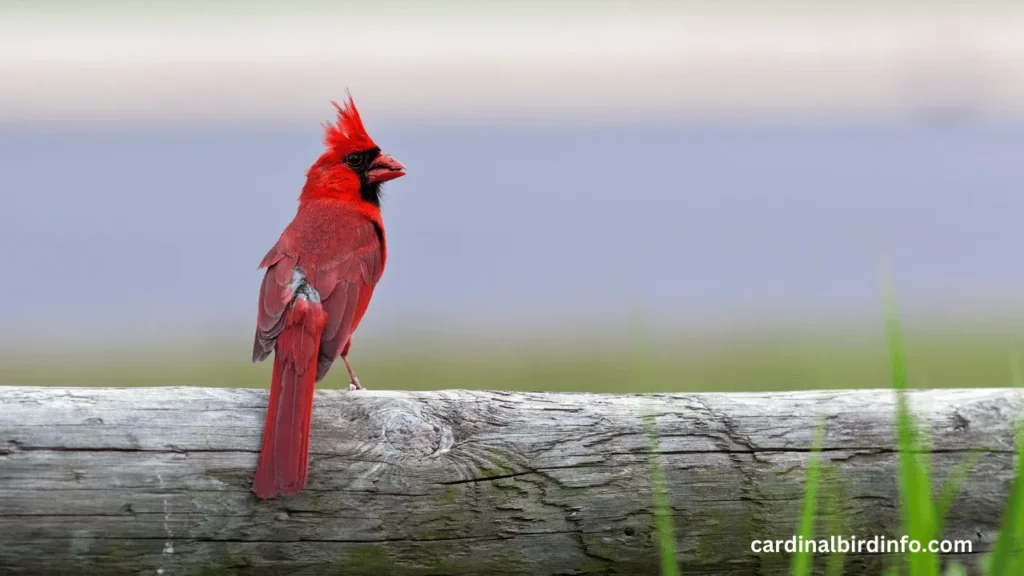Cardinals are often seen as symbols of love and loyalty in the bird world, forming deep, lasting bonds with their mates. These bright red birds, with their melodic calls and vibrant presence, are more than just a beautiful sight—they represent enduring partnerships that captivate birdwatchers and nature lovers alike.
But what happens when a cardinal loses its partner? Do they, like humans, feel the weight of loss and mourn the absence of a loved one?
While it’s easy to assign human emotions to animals, the question of whether cardinals mourn is complex. These birds are known for their strong pair bonds, working together to raise young and protect their territory.
The loss of a mate could lead to noticeable changes in their behavior, but are these signs of grief, or simply a response to the shifting dynamics of their environment? Exploring this can offer us a deeper connection to the natural world and help us understand how animals experience life and loss.
For those who’ve ever witnessed a lone cardinal after its mate has disappeared, the idea of mourning might seem like an obvious conclusion. But as we dig deeper into the science and anecdotal evidence, the truth reveals itself to be more intricate.
Understanding these behaviors is not just a matter of curiosity—it can deepen our empathy for the creatures we share our world with.

Contents
Cardinal Pair Bonding and Behavior
Cardinals are known for their strong pair bonding, which is a key to their survival. Pair bonding provides evolutionary advantages because it allows both parents to care for the offspring, increasing their chances of survival.
These bonds aren’t just practical; they’re reinforced through courtship and mating rituals, where male cardinals feed the females in a display of partnership. This behavior strengthens the bond before the pair begins building their nest.
Once they’ve formed a pair, cardinals work together in nest building and raising their young. Both parents play crucial roles—the male protects the territory, while the female incubates the eggs. This teamwork is essential for the success of their brood, further highlighting the importance of their pair bonds.
Evidence for Mourning Behavior
There have been numerous anecdotal observations from birdwatchers, who report seeing cardinals displaying behaviors that suggest mourning after the loss of a mate.
Some have observed decreased vocalizations, a tendency for the surviving bird to stay near the location of the loss, and a drop in foraging activity. These behaviors seem to reflect distress, but it’s unclear whether they are due to grief or other factors.
While the idea of mourning in cardinals is mostly based on anecdotes, some scientific studies have examined similar behaviors in other birds.
Researchers have noted that specific behaviors like reduced activity, lethargy, and even changes in vocal patterns could indicate emotional responses, though more research is needed to determine whether these behaviors qualify as mourning.

Alternative Explanations
It’s also possible that the behaviors we interpret as grief are actually signs of stress responses rather than true mourning. The sudden absence of a mate could disrupt the bird’s social structure or even affect its territorial control, causing changes in behavior that might be linked to survival rather than emotion.
Another important factor to consider is the environmental influences on a cardinal’s behavior. The availability of food, the presence of predators, or even changes in weather conditions could impact how the bird behaves after losing a mate. These environmental stressors can often explain changes in behavior that may not be linked to grief at all.
The Role of Cognition and Emotion
Cardinals, like other birds, have demonstrated cognitive abilities that suggest a capacity for more complex behaviors. Birds have shown signs of problem-solving, memory, and even emotion-like responses in certain situations.
While animal cognition is still a growing field, some evidence points toward the possibility that cardinals, and birds in general, may experience a form of grief or emotional reaction to loss.
There is ongoing research into the neurological basis for emotion in birds. Studies on bird brains have revealed that some regions responsible for emotions in mammals are also present in avian species, suggesting that birds might experience emotions like grief on a biological level. However, proving this with cardinals specifically will require further investigation.
Ethical Considerations
The question of whether animals like cardinals mourn raises important ethical considerations for researchers. Studying animal emotions, especially in wild populations, requires a careful approach to avoid causing unnecessary harm or stress.
Understanding these behaviors not only deepens our connection with nature but also informs conservation efforts. Conservationists who study bird behavior argue that knowing more about how cardinals form and maintain bonds could be crucial in efforts to protect them.
By better understanding their emotional needs, researchers can ensure that habitats and conservation programs are designed in ways that support their natural behaviors.
Conclusion
In conclusion, while there is still much to learn, it seems clear that cardinal behavior changes after the loss of a mate. Whether these changes reflect true mourning or are simply a response to environmental or social stress remains a matter of debate.
The evidence suggests that cardinals experience emotional reactions on some level, though it may not be exactly the same as human grief.
Future research into the cognitive and emotional lives of cardinals will help clarify these behaviors. Understanding how these birds cope with loss not only deepens our appreciation for them but also has broader implications for animal welfare and conservation.
For now, we can marvel at the intricate lives of cardinals and their resilience, knowing that their connections are as complex as they are beautiful.
FAQs
1. Do cardinals mate for life?
Yes, cardinals often form strong, long-term pair bonds, though they may find a new mate if one dies.
2. How do cardinals behave after losing a mate?
Some cardinals may show signs of distress, such as decreased vocalization and less frequent foraging, though it’s not clear if these are signs of mourning.
3. Do birds grieve the loss of a mate?
Some birds exhibit behaviors that suggest grief, though more research is needed to confirm this in cardinals
4. How long does it take for a cardinal to find a new mate?
Cardinals may find a new mate within the same breeding season or by the next one, depending on circumstances.
5. Are there studies proving cardinals mourn?
While there is anecdotal evidence, scientific studies on cardinal mourning are limited, and more research is needed.
6. Do female or male cardinals mourn differently?
There is no clear evidence that male and female cardinals mourn differently, though both may exhibit signs of distress.








